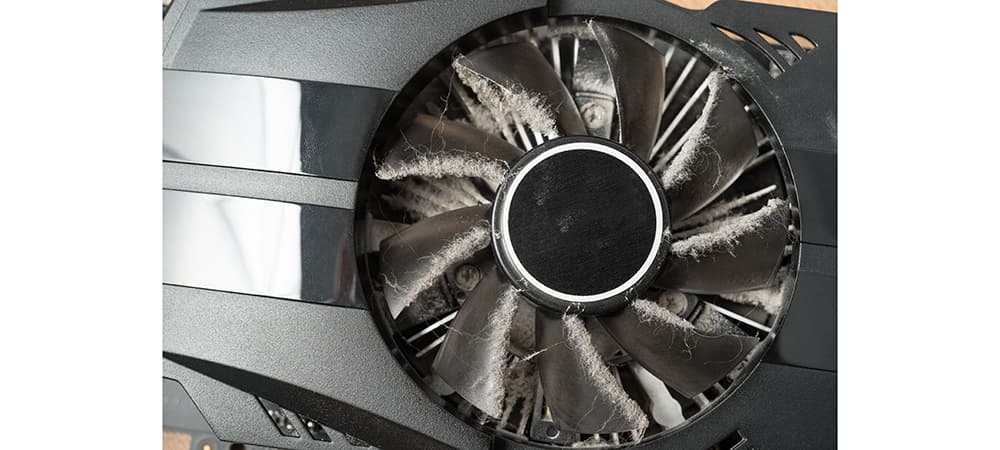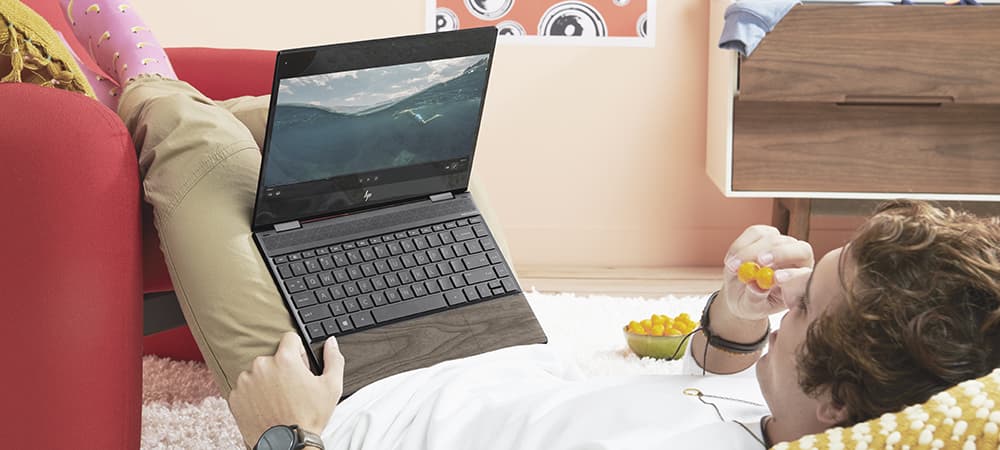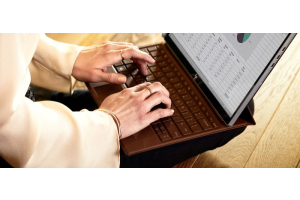We use cookies to offer you a better experience. For more information on how we use cookies you can read our Cookie and Privacy Policy.
Silence Your Laptop Fan Noise with HP Smart Sense
August 12, 2021

Whether you’re gaming on the go, finishing homework at the library, or cranking out a spreadsheet on a train, laptops are unmatched in terms of convenience. However, that incredible portability comes at a cost. Components must be smaller and therefore may overheat faster than other computer form factors. If your laptop fan is running all the time. The noise can be distracting, particularly if you are worried that you may damage the internal components.
One of the best ways to reduce your laptop fan noise while keeping your laptop in top form is to use a software solution like HP Smart Sense to regulate the amount of heat your laptop generates. It can help your laptop dynamically adapt to your changing needs.
In this article, we’ll explain why laptop fans make noise and, more importantly, how you can silence them to enjoy a quiet laptop with HP Smart Sense.
Why is my laptop fan making noise?
There are many reasons why a laptop fan may be making noise, including overheating, lack of cleanliness, hardware issues, or software issues.
Overheating
If your laptop fan is loud, the first thing you need to explore is whether your laptop is overheating. If so, you need to also look at how you use your laptop. Here are some factors as to why your laptop is making noise.
- Are you using it in bed or another non-flat surface?
- Is the fan able to properly ventilate?
- Are you constantly running resource-hungry programs like video games or a tab-filled Internet browser?
Cleanliness

Next, make sure your laptop is clean and free from any dust or dirt. You can use compressed air to blow out debris. Use a flashlight to see inside the vents to check that you got all the dust.
Fans are malfunctioning or broken
It’s possible for fan motors or fan blades to malfunction. Or they may be missing or broken. This will cause increased strain on your laptop because the remaining blades will need to work harder to cool the internal components.
Software issue

There may be some software issues causing the sound, too. Malware infecting your laptop, outdated drivers (Yes, you need to update), and hard drive malfunctions can all lead to loud fan noise.
Use HP Smart Sense to quiet down your laptop
HP Smart Sense helps to regulate laptop computer fans. This software is packaged as a part of HP's Command Centre. When using this software, laptops automatically adapt to how you use your laptop. It then works to reduce overheating, quiet overactive laptop fans, and even save battery life.
1. Adapts performance and temperature
You’ll access HP Smart Sense through HP Command Centre, where you can turn it on. This allows HP Smart Sense to adjust the temperature and cooling preferences of your laptop by leveraging its hardware, software, and mechanical design. This is dynamically based on the applications you use and where you physically place your laptop.
HP Smart Sense will then determine the thermal profile of your device. After creating this thermal profile, it will adjust its temperature accordingly, which will help to keep your laptop cooler and its fan quieter.
2. Adapts fan use for video and audio

Audio listening and video viewing pleasure can take a nosedive if your laptop fan is too loud. To combat this, HP Smart Sense dynamically lowers your laptop fan noise when you are listening to Spotify, streaming Netflix, or using any media software.
We all know there are few things worse than a loud fan drowning out a movie or song, but the intelligent design of HP Smart Sense can help you never miss your show’s dialogue again. It’ll automatically detect when you’re viewing media and reduce the laptop noise accordingly.
3. Fine tune your system preferences
There may be times where you want to override HP Smart Sense’s automatic settings, and HP Command centre lets you do just that. After opening Command centre, you can manage the fan settings directly to one of four modes:
- Balance mode
- Cool mode
- Performance mode
- Quiet mode
Keep in mind that if you lower the fan noise and choose to run power-intensive applications anyway, you may cause your laptop's internal components to heat up. If you do this too much, it may damage your laptop’s hardware. To avoid this, make sure you only manually fine tune your laptop fan preferences when you absolutely need to.
Other ways to reduce fan noise on a laptop

Aside from using HP Smart Sense, there are other ways to make your laptop fan quieter. They include a combination of software-based and hardware solutions.
1. Use Task Manager to close programs
Overheating and noise usually go hand-in-hand with technology, especially with a laptop. To keep an eye on this, take a look at the programs you have running in the background. They may be sending your laptop fan into overdrive.
The easiest way to view these programs is through Task Manager. You can either search for “Task Manager” in the Windows search bar or you can press “Ctrl + Alt + Del” and select the Task Manager.
With Task Manager open, you can see how your programs are using the CPU and memory. Do you have a lot of tabs open in your browser? Expect to see it gobbling up resources. Playing a graphics-intensive game? Steam may be at the top of the list. However, there may be some apps running that you simply forgot to close.
Once you determine which programs are taking up the most resources, you can use the End Task button to close them. This should help to cool down your laptop and make your laptop fan run a bit quieter.
2. Use an external laptop exhaust fan
If you need to run resource-heavy programs, such as gaming and video editing software, you may benefit from investing in an external laptop exhaust fan. You can also purchase one of these fans in the form of a cooling mat. They both work to reduce the heat your laptop generates.
These external cooling fans typically are portable, USB compatible, and plug and play, which means they automatically start working once you connect them into your laptop. They make it easy to cool down your laptop and reduce its fan noise in an external setting such as an office, coffee shop or your back porch where you can't control the temperature.
3. Clean your laptop fan
You should try to clean your laptop regularly. It’s an important skill that requires a degree of finesse, because you’re dealing with delicate components. One of the most essential components is the laptop fan, because it will get noisy if you don't clean it. Even worse, it could cause the rest of your components to overheat, leading to bigger hardware issues.
To clean your laptop fan, use a can of compressed air to blow the dust out of it. This will easily dislodge the dust from the laptop fan. To do so, make sure your laptop is fully powered down. Then, unscrew the bottom laptop panel with a screwdriver and use the compressed air to blow the dust out of the fan.
Summary
Learning how to make a laptop fan quieter is an important part of being a responsible laptop owner. Loud fans aren’t just disruptive; they can also signal that your components aren’t cooling properly. If the internal components repeatedly overheat, it’ll cause long-term damage to your device. This is why it’s so important to do what you can to reduce your laptop fan noise.
HP Smart Sense is an excellent method to silence your laptop fan, and it is available on HP Spectre and HP ENVY brand laptops. If you don’t own one of these devices, we’ve given you several software-based and hardware-based solutions to see if you can reduce your laptop fan noise. And when it’s time to invest in a new laptop, HP Smart Sense laptops just make sense.
About the Author: Daniel Horowitz is a contributing writer for HP Tech Takes. Daniel is a New York-based author and has written for publications such as USA Today, Digital Trends, Unwinnable Magazine, and many other media outlets.
Article reposted with permission from HP Tech Takes






